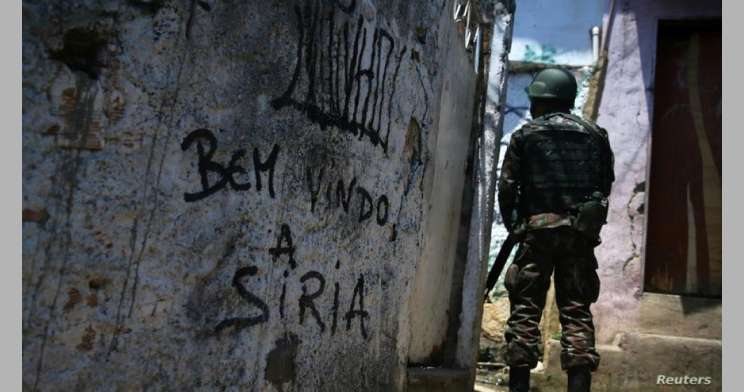
[ad_1]
Washington, Dubai – (Al-Hurra, agencies): It seems that the sanctions against Lebanese Hezbollah and the financial hardship it is suffering to dry up its sources of funding in Iran have begun to look different, this time in coordination with its partner , the Syrian regime, which has turned into one of the main sources of drug trafficking in Iran. Countries of the world, especially Arab ones, trying to dump them with these types.
Two days ago, the Saudi Directorate-General for Narcotic Control announced that one of the country’s largest drug smuggling operations had been thwarted, noting that this “criminal” operation contained more than 19 million tablets of the drug “amphetamine. “, which were hidden in bottles of the” mate “drink.
In this specific operation, 4 people involved were arrested: a Saudi citizen, a citizen of Bangladesh and two people of Syrian nationality residing in the Kingdom of Saudi Arabia, according to the management statement.
Sources revealed that the shipment, which included “Mate” packages, explains that it is of the “Green Map” brand owned by the Syrian Kebour family, which, according to the opposition site “Zaman Al Wasl”, captures most of the Syrian market. Mate, and its owner is one of the regime’s supporters and financiers.
And in the United Arab Emirates, on February 26, Dubai police announced that the largest Captagon smuggling operation in the world, worth 1.8 billion dirhams (about half a million US dollars), had been foiled. ) and the amount of seizures has increased to five tons, equivalent to over 35 million pills. Captagon was smuggled from the port of Latakia in Syria. The quantity was literally hidden inside huge metal wires.
The commander in chief of the Dubai police at the time confirmed the arrest of 4 Arab people belonging to an international gang trained in drug trafficking.
This attempt to smuggle drugs into Arab countries from Syria is not an orphan. Going back to April 12 this year, Egyptian authorities thwarted an attempt to smuggle large quantities of “hashish” drugs hidden in milk cartons aboard a ship from Syria and bound for Libya via Egypt.
The shipment’s cargo amounted to 4 tons of hashish hidden inside sealed milk cartons bearing the brand name of the company “Milkman” owned by the Syrian businessman, and the relative of the Assad family, Rami Makhlouf, who released a declaration of denial of the cargo, and denounced “the use of the drug dealers in the use of the products. His company to carry out these actions.” He said: “Anyone who distorts this development work by unpacking these products and packing them with drugs is a despicable coward which leads to the apex of insulting our work and our company “.
Also in Egypt, precisely on January 19, the General Administration of Customs of East Port Said managed to thwart a smuggling attempt, for a quantity of drugs containing more than half a ton of hashish packed in 2,700 pieces and hidden in 1128 cages of apples from Syria to the port of East Port Said on behalf of an import company. And export.
It seems that drug trafficking from Syria is not limited only to Arab countries: on July 5, 2019, the Greek authorities confiscated what they called “the largest amount of drug seized in the world” from Syria.
The Financial Crimes Unit said the Coast Guard and drug control officers confiscated three containers filled with amphetamines, containing 33 million Captagon tablets, valued at approximately $ 660 million.
Also in Greece, precisely in mid-December 2018, the Coast Guard seized a ship loaded with drugs flying the Syrian flag, and was on its way to Libya. Reuters reported at the time that Greek authorities had found six tons of hashish and three million narcotic tablets on board.
Reuters added that the ship exited the port of Latakia and was on its way to the city of Benghazi when it was intercepted by Greek authorities off the coast of Crete.
All these kidnappings related to the countries’ fight against drugs show the large scale of smuggling from areas controlled by the Syrian regime, but the most important is the management of this system by Hezbollah, as a study prepared by the Foundation’s Study Center Syrian opposition “I Am Human” concluded that Hezbollah is cooperating with regime elements in The Fourth Division “brought the equipment to produce Captagon pills, known as Al-Maktis, into the western Daraa countryside.
The study states that these narcotic pills are manufactured and distributed to young people inside Syria, as well as supplied to volunteers in the ranks of the Syrian regime and Hezbollah forces, as well as smuggled abroad.
In late 2017, US magazine Politico revealed, in a 3-part investigation, Hezbollah’s drug-related activities with Iranian backing, and the report addresses obstruction by the former president of the states administration. United Barack Obama to investigate to reach nuclear agreement with Tehran.
The investigation was known at the time as the “Csandra Project” and referred to Hezbollah’s activities in the arms and drug trade, money laundering and more.
.
[ad_2]
Source link